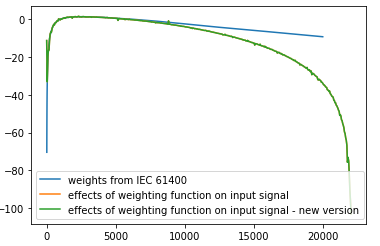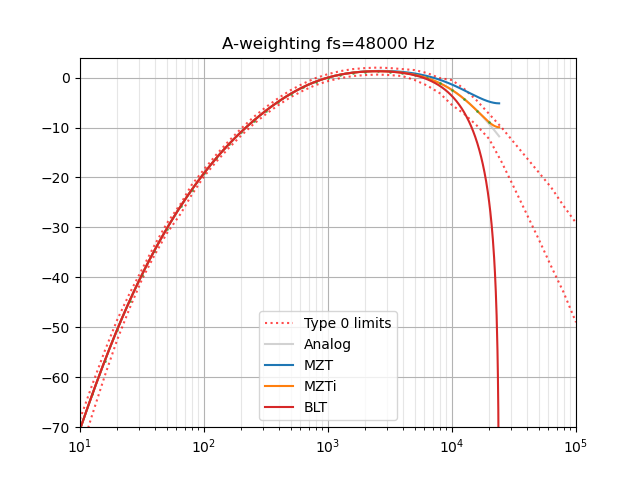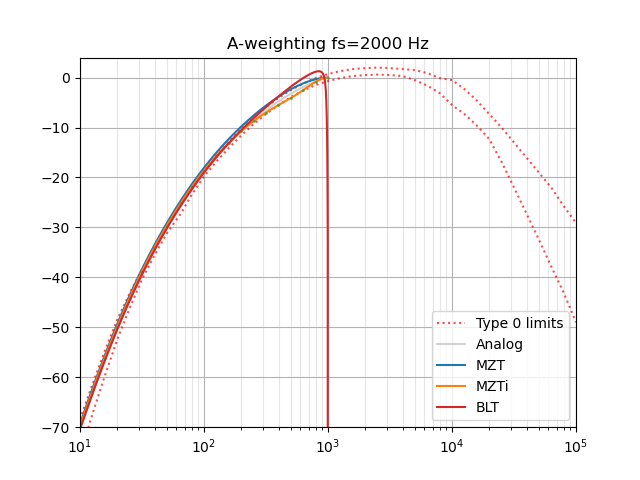|
#!/usr/bin/env python |
|
# -*- coding: utf-8 -*- |
|
""" |
|
Translated from a MATLAB script (which also includes C-weighting, octave |
|
and one-third-octave digital filters). |
|
|
|
Author: Christophe Couvreur, Faculte Polytechnique de Mons (Belgium) |
|
couvreur@thor.fpms.ac.be |
|
Last modification: Aug. 20, 1997, 10:00am. |
|
BSD license |
|
|
|
http://www.mathworks.com/matlabcentral/fileexchange/69 |
|
Translated from adsgn.m to Python 2009-07-14 endolith@gmail.com |
|
""" |
|
|
|
from numpy import pi, polymul |
|
from scipy.signal import bilinear |
|
|
|
|
|
def A_weighting(fs): |
|
"""Design of an A-weighting filter. |
|
|
|
b, a = A_weighting(fs) designs a digital A-weighting filter for |
|
sampling frequency `fs`. Usage: y = scipy.signal.lfilter(b, a, x). |
|
Warning: `fs` should normally be higher than 20 kHz. For example, |
|
fs = 48000 yields a class 1-compliant filter. |
|
|
|
References: |
|
[1] IEC/CD 1672: Electroacoustics-Sound Level Meters, Nov. 1996. |
|
|
|
""" |
|
# Definition of analog A-weighting filter according to IEC/CD 1672. |
|
f1 = 20.598997 |
|
f2 = 107.65265 |
|
f3 = 737.86223 |
|
f4 = 12194.217 |
|
A1000 = 1.9997 |
|
|
|
NUMs = [(2*pi * f4)**2 * (10**(A1000/20)), 0, 0, 0, 0] |
|
DENs = polymul([1, 4*pi * f4, (2*pi * f4)**2], |
|
[1, 4*pi * f1, (2*pi * f1)**2]) |
|
DENs = polymul(polymul(DENs, [1, 2*pi * f3]), |
|
[1, 2*pi * f2]) |
|
|
|
# Use the bilinear transformation to get the digital filter. |
|
# (Octave, MATLAB, and PyLab disagree about Fs vs 1/Fs) |
|
return bilinear(NUMs, DENs, fs) |












@endolith, Thank you for the code, it works out perfectly!
I am also new in acoustics, could you please let me know if this is based on octave band or one third octave band please?
Thanks.